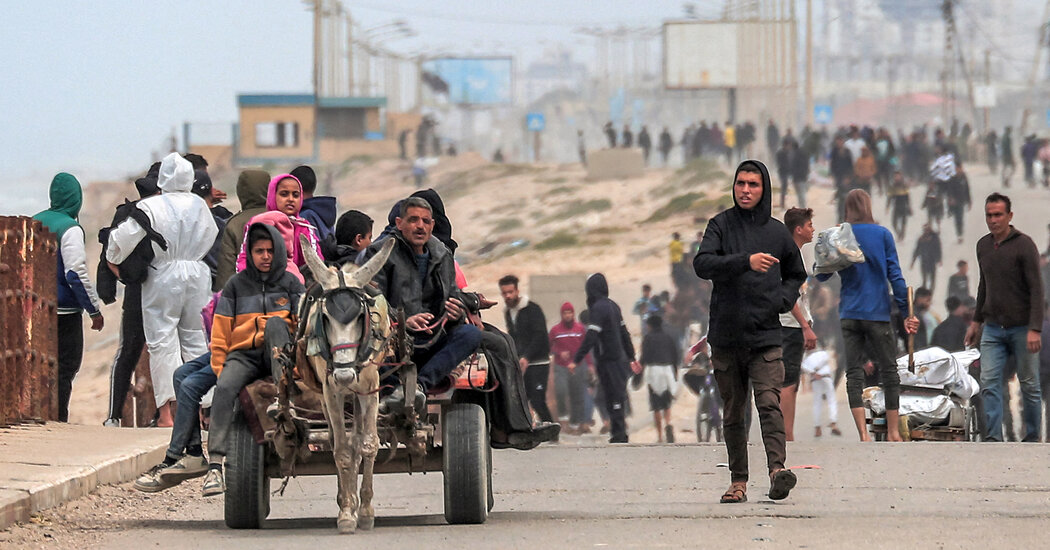
The experimental effort, which has not been disclosed, is being used to conduct mass surveillance of Palestinians in Gaza, according to military officials and others.
Within minutes of walking through an Israeli military checkpoint along Gaza’s central highway on Nov. 19, the Palestinian poet Mosab Abu Toha
Half an hour later, Mr. Abu Toha heard his name called. Then he was blindfolded and led away for interrogation.
“I had no idea what was happening or how they could suddenly know my full legal name,” said the 31-year-old, who added that he had no ties to the militant group Hamas and had been trying to leave Gaza for Egypt.
It turned out Mr. Abu Toha had walked into the range of cameras embedded with facial recognition technology, according to three Israeli intelligence officials who spoke on the condition of anonymity. After his face was scanned and he was identified, an artificial intelligence program found that the poet was on an Israeli list of wanted persons, they said.
Mr. Abu Toha is one of hundreds of Palestinians who have been picked out by a previously undisclosed Israeli facial recognition program that was started in Gaza late last year. The expansive and experimental effort is being used to conduct mass surveillance there, collecting and cataloging the faces of Palestinians without their knowledge or consent, according to Israeli intelligence officers, military officials and soldiers.
The technology was initially used in Gaza to search for Israelis who were taken hostage by Hamas during the Oct. 7 cross-border raids, the intelligence officials said. After Israel embarked on a ground offensive in Gaza, it increasingly turned to the program to root out anyone with ties to Hamas or other militant groups. At times, the technology wrongly flagged civilians as wanted Hamas militants, one officer said.
Thank you for your patience while we verify access. If you are in Reader mode please exit and log into your Times account, or subscribe for all of The Times.
Thank you for your patience while we verify access.
Already a subscriber? Log in.
Want all of The Times? Subscribe.